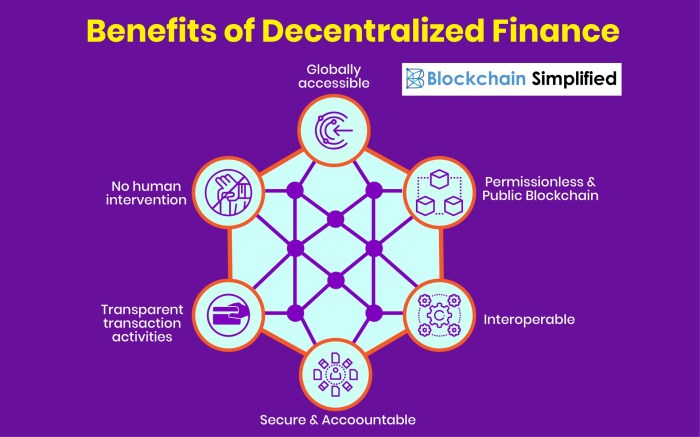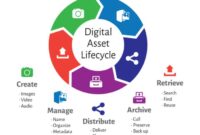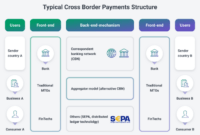With Decentralized finance (DeFi) at the forefront, this paragraph opens a window to an amazing start and intrigue, inviting readers to embark on a storytelling journey filled with unexpected twists and insights. Decentralized finance (DeFi) has been making waves in the financial world, offering a new way of managing and accessing financial services without the need for traditional intermediaries.
As we delve deeper into the world of DeFi, we uncover innovative applications, groundbreaking principles, and the potential to reshape the global economy as we know it.
Overview of DeFi

Decentralized finance (DeFi) refers to a system that aims to recreate traditional financial systems using blockchain technology. In DeFi, financial services such as lending, borrowing, trading, and investing are conducted on decentralized platforms, eliminating the need for intermediaries like banks.
Key Principles of DeFi
- Decentralization: DeFi platforms operate on a decentralized network of computers, removing the need for a central authority.
- Transparency: All transactions on DeFi platforms are recorded on a public blockchain, allowing users to verify activity.
- Interoperability: DeFi applications are designed to work together seamlessly, creating a connected ecosystem.
- Accessibility: DeFi platforms are open to anyone with an internet connection, enabling financial inclusion globally.
Examples of DeFi Applications and Platforms
- Decentralized Exchanges (DEXs): Platforms like Uniswap and Sushiswap allow users to trade cryptocurrencies directly with one another without relying on a centralized exchange.
- Decentralized Lending Platforms: Projects like Compound and Aave enable users to earn interest by lending out their cryptocurrencies or borrow assets using their holdings as collateral.
- Automated Market Makers (AMMs): Protocols such as Balancer and Curve use algorithms to provide liquidity for trading pairs, enabling efficient and cost-effective trading.
Benefits of DeFi
DeFi, or Decentralized Finance, offers several advantages over traditional finance systems. Let’s explore how DeFi promotes financial inclusion and its potential impact on the global economy.
Advantages of DeFi over Traditional Finance
- Accessibility: DeFi allows anyone with an internet connection to access financial services, without the need for a traditional bank account.
- Transparency: Transactions on DeFi platforms are recorded on a public blockchain, providing a high level of transparency and reducing the risk of fraud.
- Security: DeFi eliminates the need to trust a centralized authority, reducing the risk of hacking or manipulation.
- Lower Costs: DeFi platforms often have lower fees compared to traditional financial institutions, making financial services more affordable for users.
Financial Inclusion through DeFi, Decentralized finance (DeFi)
- Empowering the Unbanked: DeFi provides financial services to individuals who are underserved or excluded by traditional banking systems, allowing them to participate in the global economy.
- Borderless Transactions: DeFi enables cross-border transactions without the need for intermediaries, making it easier for individuals in different parts of the world to engage in financial activities.
- Microfinance Opportunities: DeFi opens up opportunities for microfinance by allowing individuals to access small loans and other financial services without cumbersome requirements.
Potential Impact of DeFi on the Global Economy
- Financial Innovation: DeFi promotes innovation in the financial sector, leading to the development of new products and services that can benefit individuals and businesses worldwide.
- Economic Growth: By providing access to financial services for underserved populations, DeFi has the potential to stimulate economic growth and reduce poverty levels globally.
- Decentralization: DeFi contributes to the decentralization of financial systems, reducing the concentration of power in the hands of a few institutions and promoting a more democratic financial landscape.
DeFi Protocols
:max_bytes(150000):strip_icc()/decentralized-finance-defi-5113835-3bd35e94d7414f9abd030bea7910b467.png?w=700)
Decentralized Finance (DeFi) protocols are the backbone of the DeFi ecosystem, providing various financial services without the need for traditional intermediaries like banks. These protocols are powered by smart contracts running on blockchain technology, ensuring transparency, security, and efficiency in the execution of financial transactions.
Lending Protocols
Lending protocols in DeFi allow users to borrow or lend digital assets without the need for a centralized authority. Platforms like Compound and Aave use smart contracts to facilitate lending and borrowing activities, with interest rates determined algorithmically based on supply and demand.
Decentralized Exchanges (DEX)
Decentralized exchanges enable users to trade cryptocurrencies directly with one another without the need for a centralized exchange. Protocols like Uniswap and Sushiswap use automated market makers (AMM) and smart contracts to provide liquidity and facilitate trading in a non-custodial manner.
Smart Contracts in DeFi Protocols
Smart contracts play a crucial role in DeFi protocols by automating the execution of financial transactions based on predefined conditions. These self-executing contracts ensure that transactions are secure, transparent, and irreversible, eliminating the need for trust in intermediaries.
Risks Associated with DeFi Protocols
While DeFi protocols offer numerous benefits, they also come with inherent risks. Smart contract vulnerabilities, price volatility, and liquidity risks are some of the key challenges associated with using DeFi protocols. Users need to exercise caution, conduct thorough research, and understand the risks involved before engaging in DeFi activities.
DeFi Tokens: Decentralized Finance (DeFi)

Tokens play a crucial role in the decentralized finance (DeFi) ecosystem, serving various functions from governance to utility within different protocols. These tokens are often used to incentivize users, facilitate transactions, and enable participation in the decision-making processes of DeFi platforms.
Popular DeFi Tokens and Their Use Cases
- Compound (COMP): COMP is used for governance in the Compound protocol, allowing holders to vote on proposals and changes within the platform.
- Uniswap (UNI): UNI is the native token of the Uniswap decentralized exchange, providing liquidity providers with rewards and allowing for governance participation.
- Aave (AAVE): AAVE serves as the governance token for the Aave protocol, enabling holders to vote on improvements and changes to the platform.
- SushiSwap (SUSHI): SUSHI is used for governance and staking rewards in the SushiSwap decentralized exchange, incentivizing users to provide liquidity.
Trends in DeFi Token Creation and Distribution
The creation and distribution of DeFi tokens have seen significant growth in recent years, with new projects launching tokens to fund development and attract users. Initial Coin Offerings (ICOs) and Initial DEX Offerings (IDOs) have been popular methods for distributing tokens, allowing early adopters to acquire tokens at a discounted price. However, the rise of decentralized finance has also led to the emergence of yield farming and liquidity mining, where users can earn tokens by providing liquidity to DeFi protocols. This trend has created new opportunities for users to participate in the DeFi ecosystem and contribute to the growth of decentralized finance.
DeFi Security
When it comes to decentralized finance (DeFi) platforms, security is of paramount importance to protect users’ assets from potential risks or vulnerabilities. Let’s delve into common security risks in DeFi platforms, best practices for securing DeFi assets, and the role of audits and security protocols in ensuring the safety of DeFi platforms.
Common Security Risks in DeFi Platforms
- Smart Contract Vulnerabilities: Smart contracts are the backbone of DeFi platforms, but they can be susceptible to bugs or exploits that could lead to asset loss.
- Centralized Points of Failure: Some DeFi platforms may have centralized components that could be targeted by malicious actors.
- Phishing Attacks: Users may fall victim to phishing scams where they unknowingly provide their private keys or sensitive information to attackers.
Best Practices for Securing DeFi Assets
- Use Hardware Wallets: Storing DeFi assets in hardware wallets provides an extra layer of security compared to online wallets.
- Enable Two-Factor Authentication (2FA): Implementing 2FA adds an additional security measure to protect accounts from unauthorized access.
- Stay Informed: Keeping up to date with the latest security practices and staying cautious of potential phishing attempts can help safeguard DeFi assets.
Role of Audits and Security Protocols
Audits play a crucial role in verifying the security and integrity of DeFi platforms. By conducting thorough audits, vulnerabilities can be identified and addressed before they are exploited by bad actors. Security protocols, such as multi-signature wallets and encryption mechanisms, are also essential in protecting user assets and maintaining the overall security of DeFi platforms.
In conclusion, Decentralized finance (DeFi) stands as a beacon of financial innovation, promising a more inclusive and efficient future. With its decentralized nature and transformative capabilities, DeFi is poised to revolutionize how we interact with money and financial services. Embrace the decentralized revolution and join the movement towards a more accessible and equitable financial landscape.
Blockchain technology is revolutionizing the way data is stored and shared across networks. With its decentralized and secure nature, Blockchain technology is paving the way for transparent and efficient transactions in various industries.
As digital currencies continue to gain popularity, understanding Cryptocurrency is essential for anyone looking to invest or trade. The decentralized nature of these digital assets offers a new way to transfer value globally.
When it comes to investing in the crypto market, keeping an eye on Altcoins to watch can be a smart strategy. These alternative cryptocurrencies have the potential for significant growth and can diversify your investment portfolio.




